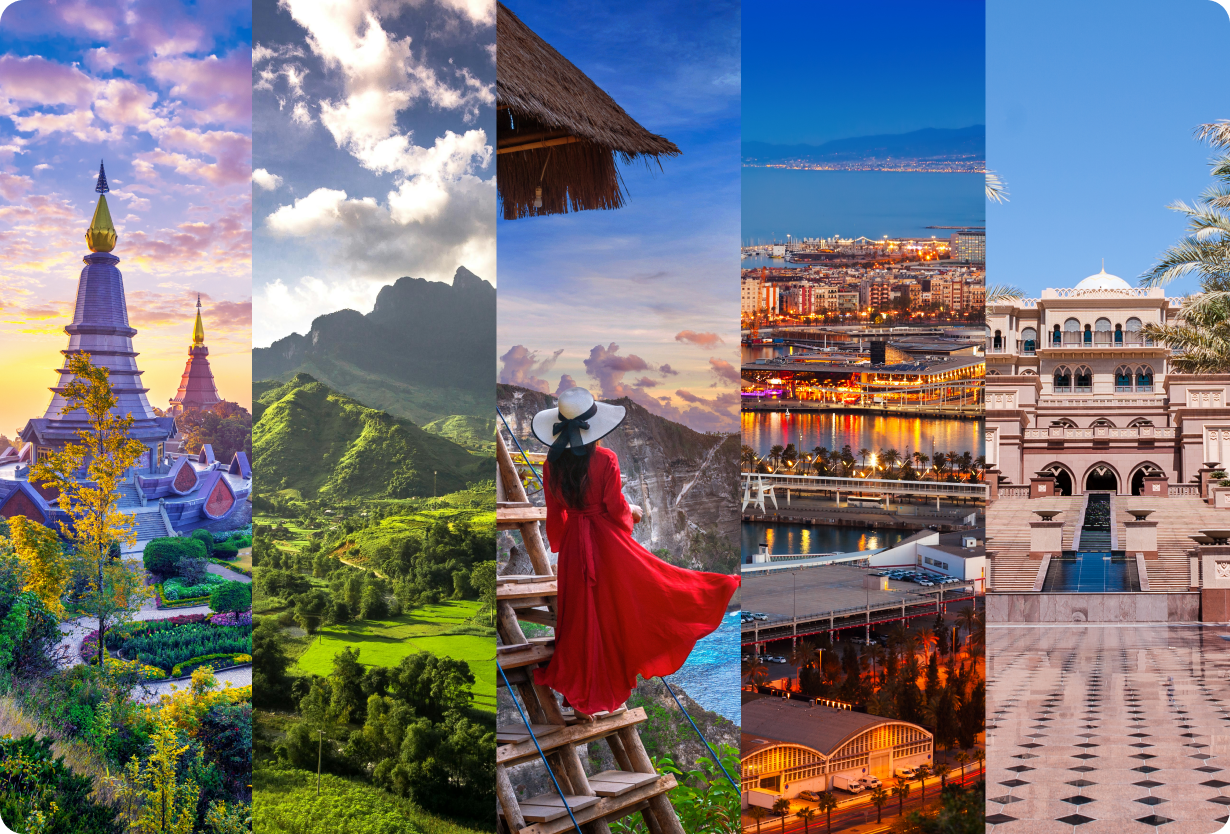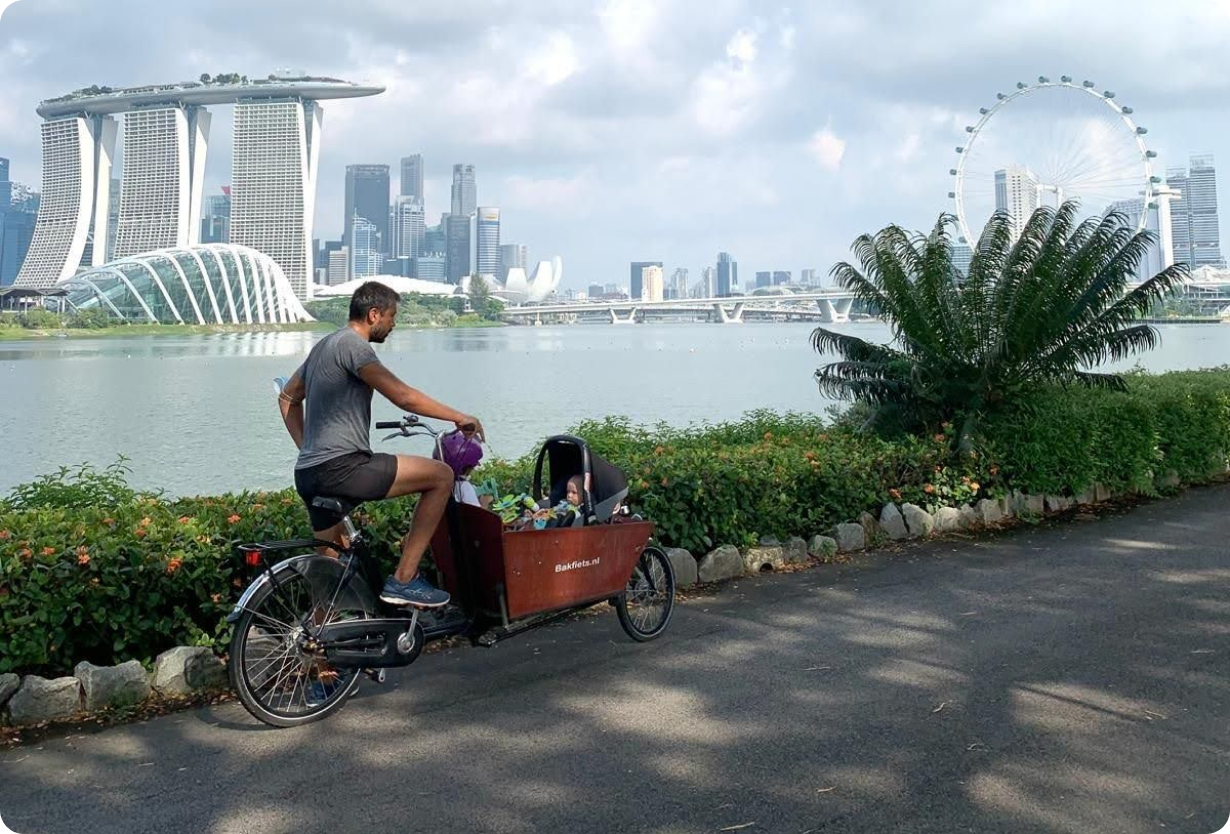
Table of Contents
- What It’s Really Like to Relocate and Live in Dubai
- A City Designed for Ambition
- Real Quality of Life (Not Just Flashy Headlines)
- Who Lives in Dubai?
- Housing, Transportation, and Daily Logistics
- Visas, Paperwork, and Bureaucracy
- Healthcare, Safety, and Everyday Security
- Culture, Law, and What Visitors Often Miss
- The Long-Term View: Staying in Dubai
- Final Thoughts
Last updated: 22nd August, 2025
What It’s Really Like to Relocate and Live in Dubai
When people think about moving to Dubai, they often picture five-star hotels, giant malls, and futuristic skyscrapers. While those images aren’t wrong, they’re only part of the story. Dubai is also where millions of people from around the world live regular, day-to-day lives: going to work, dropping their kids at school, grocery shopping, and navigating a complex, fast-changing city.
If you’re considering relocating to Dubai, this isn’t a list of what to pack or which visa to apply for. It’s an inside look at what it’s actually like to live there, what makes it appealing, and what you need to be ready for once you arrive.
A City Designed for Ambition
Most people don’t move to Dubai on a whim. There’s usually a specific reason: a job offer, a business opportunity, or a strategic career move. The city is built for that kind of momentum. Everything from the roads to the visa systems to the internet infrastructure is designed to support movement, growth, and business.
Dubai is a place where things happen quickly. Visas are processed fast, new buildings rise overnight, and career progression can feel accelerated. Expats often describe the first few months as overwhelming, not because the systems don’t work, but because everything works too efficiently. There’s very little waiting around.
But ambition isn’t everything. What keeps people in Dubai isn’t just the potential to earn or grow, but the fact that the infrastructure around that ambition is solid: safe streets, reliable healthcare, clean public spaces, and a consistent standard of service in almost every industry.
Real Quality of Life (Not Just Flashy Headlines)
Dubai is known for luxury, but what makes the lifestyle appealing to most residents is convenience. Most apartment buildings have gyms, pools, and parking. Most grocery stores deliver within 30 minutes. You can book a doctor’s appointment, renew your car registration, or schedule a house cleaning online in minutes.
For professionals, life feels streamlined. For families, it feels safe. And for individuals, it offers a unique mix of comfort and structure.
That said, it’s not cheap. Rent is high, especially in popular expat areas like Marina, Downtown, or Jumeirah. Schools can be very expensive. Brunches, taxis, and services add up. But if your salary reflects the market (and many do), the cost-to-convenience ratio is manageable, especially with no income tax.
Who Lives in Dubai?
Over 85% of Dubai’s population are foreigners. You’ll meet people from nearly every country, working across every sector, and speaking dozens of languages. English is the common ground, especially in business, but knowing a bit of Arabic helps when dealing with local authorities or traditional neighborhoods.
There’s a clear rotation of new arrivals and long-term residents. Some people stay for a few years to build savings. Others stay a decade or longer and raise families. Either way, you’re rarely the “only new person in the room.”
You’ll also notice how layered the city is. There’s the tech startup crowd in DIFC and Business Bay, the hospitality teams working in hotels and restaurants, teachers and nurses scattered throughout the city, families in villa compounds, and solo professionals in high-rise towers. It’s diverse, but not chaotic. Most people figure out where they fit in fairly quickly.
Housing, Transportation, and Daily Logistics
Renting an apartment in Dubai is different from most Western cities. You’ll typically sign a 1-year lease, pay the rent in 1 to 4 post-dated cheques, and leave a security deposit (usually 5%). You also need to register your lease with Ejari, the government rental portal, to set up utilities and complete your residence procedures.
Popular expat neighborhoods include:
Dubai Marina: Waterfront, high-rises, younger crowd
Downtown: Central, walkable, premium real estate
Jumeirah / Umm Suqeim: Villas, beach access, family-oriented
Dubai Hills / Arabian Ranches: Suburban, schools nearby, green spaces
Business Bay: Mixed-use, close to offices, good for professionals
Driving is the most common way to get around, but Dubai also has an efficient metro system, reliable taxis, and affordable ride-hailing apps (Careem, Uber). Fuel is cheap, and driving is relatively easy — although traffic can be intense during peak hours.
Visas, Paperwork, and Bureaucracy
Dubai runs on a relatively streamlined visa system. Most people arrive with an employment visa, sponsored by a company. If you’re working remotely for a foreign employer, you may qualify for the Remote Work Visa (also called the Virtual Work Program). Freelancers and entrepreneurs often apply through free zones, which allow you to run a business and secure a residence permit.
Once your visa is approved, you’ll receive:
A residence visa stamped in your passport
An Emirates ID (required for everything from renting to healthcare)
Access to open a local bank account
Make sure to complete your Emirates ID and medical checkup as soon as your visa is approved — delays here can affect everything from phone plans to renting a home.
Healthcare, Safety, and Everyday Security
Dubai’s healthcare system is excellent. Most expats use private hospitals and clinics, which offer fast, professional care. Employers are required to provide basic health insurance, but many people upgrade to more comprehensive plans.
Safety is one of Dubai’s strongest points. Violent crime is extremely rare, and petty theft is almost nonexistent. You’ll often see people leaving phones on café tables or walking alone at night — even in busy districts.
Emergency services are fast and well-equipped. The city also handles public health issues — such as COVID — with well-organized testing, reporting, and vaccination systems.
Culture, Law, and What Visitors Often Miss
While Dubai is liberal by regional standards, it’s still part of the UAE — a Muslim country with clear rules and social expectations. Some things to keep in mind:
Modesty is expected in public spaces. Beachwear is for the beach only.
Public displays of affection are discouraged and may lead to fines.
Alcohol is allowed, but only in licensed venues or at home (with a license).
Drug laws are strict and non-negotiable, even for trace amounts.
During Ramadan, eating or drinking in public during daylight hours is not allowed, even for non-Muslims.
These rules don’t dominate life, but they are enforced. Most expats adapt easily by respecting local customs and being mindful of where they are.
The Long-Term View: Staying in Dubai
More people are choosing to stay in Dubai long-term, and the government has responded with new visa pathways — including the Golden Visa, Retirement Visa, and Green Visa for skilled professionals and investors.
There’s also a growing number of digital nomads and self-employed residents choosing Dubai for its safety, infrastructure, and global connections. It’s becoming easier to build a stable life here, even without a traditional employer.
If you’re planning to stay for the long haul, you’ll want to look into:
Long-term rental options or property ownership
Private school enrollment for children
Investment opportunities through free zones or real estate
Upgrading health insurance to match your lifestyle
Final Thoughts
Relocating to Dubai isn’t just about getting a job in a new city. It’s about adjusting to a fast-moving, highly organized environment with a unique blend of cultures, expectations, and opportunities.
You don’t need to be wealthy to enjoy a good life here. But you do need to plan — from visas and rent to climate and cost of living. The more you understand how things work before you arrive, the more comfortable your transition will be.
Dubai isn’t for everyone. But for many, it offers something rare: a place to live well, earn well, and still feel connected to a global community. If that’s what you’re looking for, this city might be worth more than a visit.





